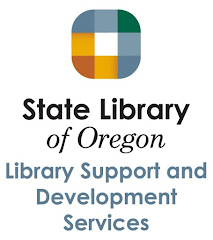Friday, September 23, 2016
2015-2016 Books Challenged or Banned
Doyle, R. P. (2016). 2015-2016 Books Challenged or Banned. Chicago, IL: American Library Association.
The annual supplement to the Banned Books Resource Guide contains information on recent bans, challenges, and successes in libraries and schools nationwide. Banned Books Week highlights the benefits of free and open access to information while drawing attention to the harms of censorship by spotlighting actual or attempted bannings of books across the United States.
For more information about Banned Books Week, please visit the Banned Books website.
(supplement description)
Thursday, September 15, 2016
Nonfiction in Motion
Dietzel-Glair, J. (2016). Nonfiction in motion: Connecting preschoolers with nonfiction books through movement. Chicago, IL: ALA Editions.
An underutilized source for storytime programs, quality nonfiction books can help bridge the reading gap between preschool boys and girls; boys enjoy facts and “true stuff,” and including these books in storytime helps boys see that reading can be fun. Here, Dietzel-Glair spotlights a multitude of nonfiction titles published since 2005 that will engage young children’s curiosity while activating learning through movement-based activities. A huge time-saver for storytime planners and presenters, and a useful collection development tool, this guide
- identifies 200 quality nonfiction books suitable for preschoolers, all in print or easy to find, covering fun topics like animals, construction, and science;
- includes recommended art, movement, music, and prop ideas for each book that will fire up children’s imaginations;
- shows how to incorporate the five practices for early literacy and offers other helpful storytime tips;
- provides several outlines for art projects; and
- features multiple indexes to aid in finding just the right title, author, or subject.
(book description)
Friday, September 9, 2016
Career Transitions for Librarians
Anderson, D. E., & Pun, R. (Eds.). (2016). Career Transitions for Librarians: Proven Strategies for Moving to Another Type of Library. New York, NY: Rowman & Littlefield.
Career Transitions for Librarians explores the multifaceted roles of the librarian profession from personal narratives of professional librarians who have successfully worked and transitioned from one type of library to another.
(book description)
Career Transitions for Librarians explores the multifaceted roles of the librarian profession from personal narratives of professional librarians who have successfully worked and transitioned from one type of library to another.
- What kinds of skill sets and experiences were they able to transfer or draw on from their previous work experiences?
- How can you make these successful transitions as well?
(book description)
Friday, September 2, 2016
Becoming a Media Mentor
Haines, C., Campbell, C., & The Association for Library Services to Children, . (2016). Becoming a Media Mentor: A Guide for Working with Children and Families. Chicago, IL: ALA Editions.
In a time of rapidly changing technologies, the role of the youth services librarian has expanded to include the realm of digital media. Supporting children’s literacy now means serving as a media mentor. This book empowers youth services staff to confidently assist families and caregivers as they navigate the digital world, guiding them towards digital media experiences that will translate into positive and productive lifelong learning skills, regardless of format. Melding the latest research and key messages from a variety of experts with replicable examples, this book
- defines what it means to be a media mentor, providing historical background and context;
- outlines three types of media mentorship: media advisory, programming, and access to curated media;
- outlines the implications of media mentorship in libraries, focusing on a shift from the notion of “screen time” to “healthy media decisions”;
- draws on detailed case studies from a wide variety of libraries and community partnerships to showcase inspiring media mentorship in action with ages 0-14;
- provides guidelines for working with diverse families and caregivers; and
- explores management issues around media mentorship, ALSC competencies, suggestions of additional resources, and professional development.
(book description)
Managing Digital Cultural Objects

Foster, Allen and Pauline Rafferty (eds.) Managing Digital Cultural Objects: Analysis, Discovery and Retrieval. Neal-Schuman, 2016. ISBN: 978-0-8389-1343-7
Description
This collection of essays explores the issues involved in the retrieval of a variety of non-textual objects, including image, music, and moving image.Case studies of digitization projects drawn from practitioners within libraries and information organizations showcase both technical and more strategic issues relating to cultural heritage projects, digital asset management and sustainability.
Table of Contents
Introduction - Pauline Rafferty and Allen Foster
Part 1: Analysis and retrieval of digital cultural object management
1. Analyzing digital cultural objects: putting it in context - Pauline Rafferty
2. Metadata models and digital cultural objects - Sarah Higgins
3. Digital traces of user-generated content - Katrin Weller
Part 2: Digitization projects in libraries, archives and museums: case-studies
4. Visual digital humanities: National Library of Wales - H. M. Dee, L. M. Hughes, G. L. Roderick and A. D. Brown
5. Managing and Preserving Digital Collections at the British Library - Maureen Pennock and Michael Day
6. Preserving digital audio material - Will Prentice
5. Managing and Preserving Digital Collections at the British Library - Maureen Pennock and Michael Day
6. Preserving digital audio material - Will Prentice
Part 3: Social networking and digital cultural objects
7. Photos: Flickr, Facebook and other social networking sites - Corinne Jorgensen
8. Searching and creating affinities in web music collections - Nicola Orio
9. Film retrieval on the Web - Katherine La Barre
8. Searching and creating affinities in web music collections - Nicola Orio
9. Film retrieval on the Web - Katherine La Barre
Subscribe to:
Posts (Atom)




